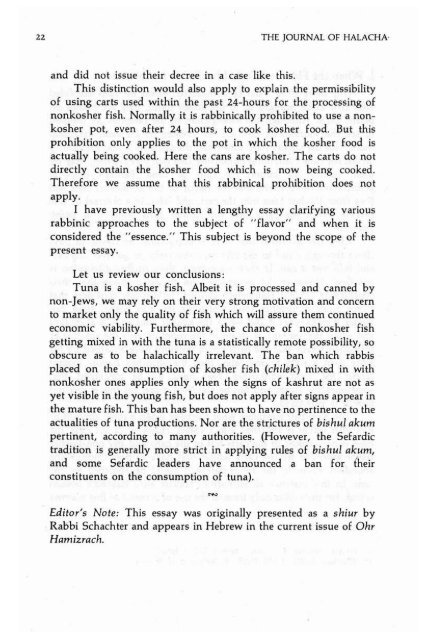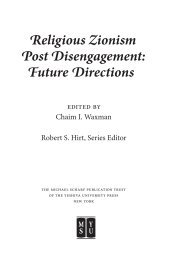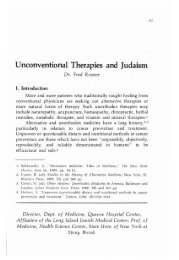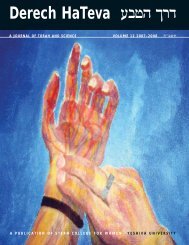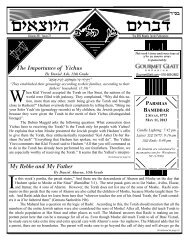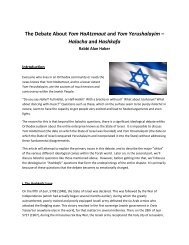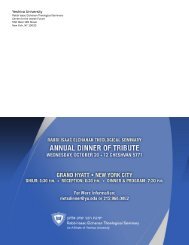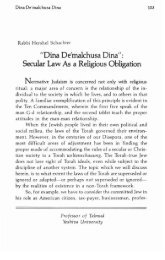Volume 15 - RJJ Journal of Halacha and ... - YU Torah Online
Volume 15 - RJJ Journal of Halacha and ... - YU Torah Online
Volume 15 - RJJ Journal of Halacha and ... - YU Torah Online
- No tags were found...
Create successful ePaper yourself
Turn your PDF publications into a flip-book with our unique Google optimized e-Paper software.
THE JOURNAL OF HALACHA<strong>and</strong> did not issue their decree in a case like this.This distinction would also apply to explain the permissibility<strong>of</strong> using carts used within the past 24-hours for the processing <strong>of</strong>nonkosher fish. Normally it is rabbinically prohibited to use a nonkosherpot, even after 24 hours, to cook kosher food. But thisprohibition only applies to the pot in which the kosher food isactually being cooked. Here the cans are kosher. The carls do noldirectly contain the kosher food which is now being cooked.Therefore we assume that this rabbinical prohibition does notapply.I have previously written a lengthy essay clarifying variousrabbinic approaches to the subject <strong>of</strong> "flavor" <strong>and</strong> when il isconsidered the "essence." This subject is beyond the scope <strong>of</strong> thepresent essay.Let us review our conclusions:Tuna is a kosher fish. Albeit it is processed <strong>and</strong> canned bynon-Jews, we may rely on their very strong motivation <strong>and</strong> concernto market only the quality <strong>of</strong> fish which will assure them continuedeconomic viability. Furthermore, the chance <strong>of</strong> nonkosher fishgelling mixed in with the tuna is a statistically remote possibility, soobscure as to be halachically irrelevant. The ban which rabbisplaced on the consumption <strong>of</strong> kosher fish (chilek) mixed in withnonkosher ones applies only when the signs <strong>of</strong> kashrut are not asyet visible in the young fish, but does not apply after signs appear inthe mature fish. This ban has been shown to have no pertinence to theactualities <strong>of</strong> tuna productions. Nor are the strictures <strong>of</strong> bishul akumpertinent, according to many authorities. (However, the Sefardictradition is generally more strict in applying rules <strong>of</strong> bishul akum,<strong>and</strong> some Sefardic leaders have announced a ban for (heirconstituents on the consumption <strong>of</strong> tuna).Editor's Note: This essay was originally presented as a shiur byRabbi Schachter <strong>and</strong> appears in Hebrew in the current issue <strong>of</strong> OhrHamizrach.


